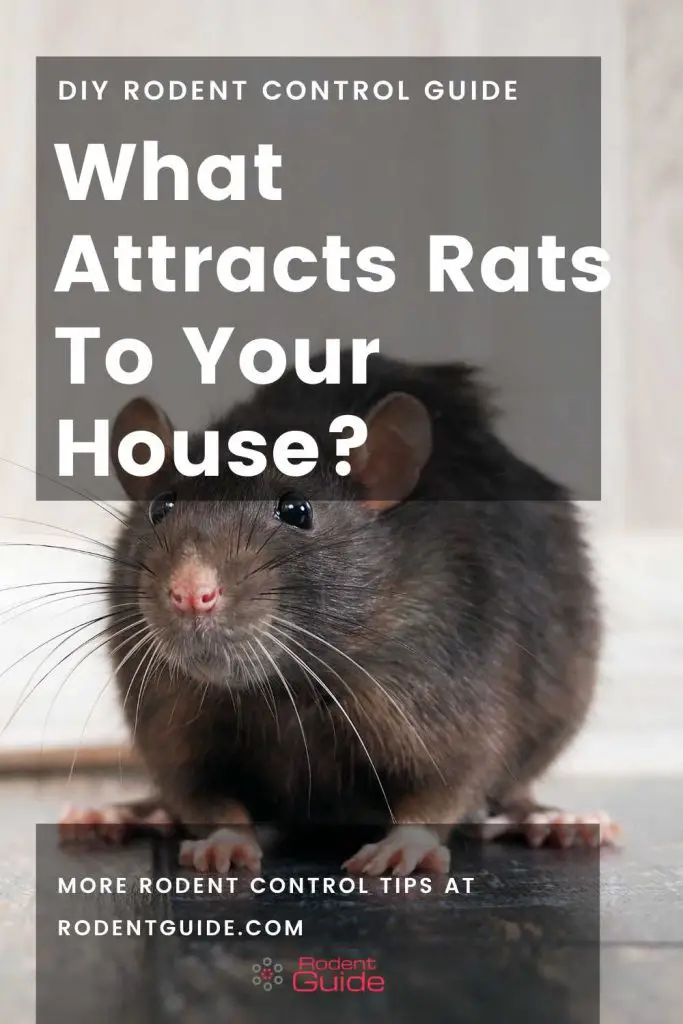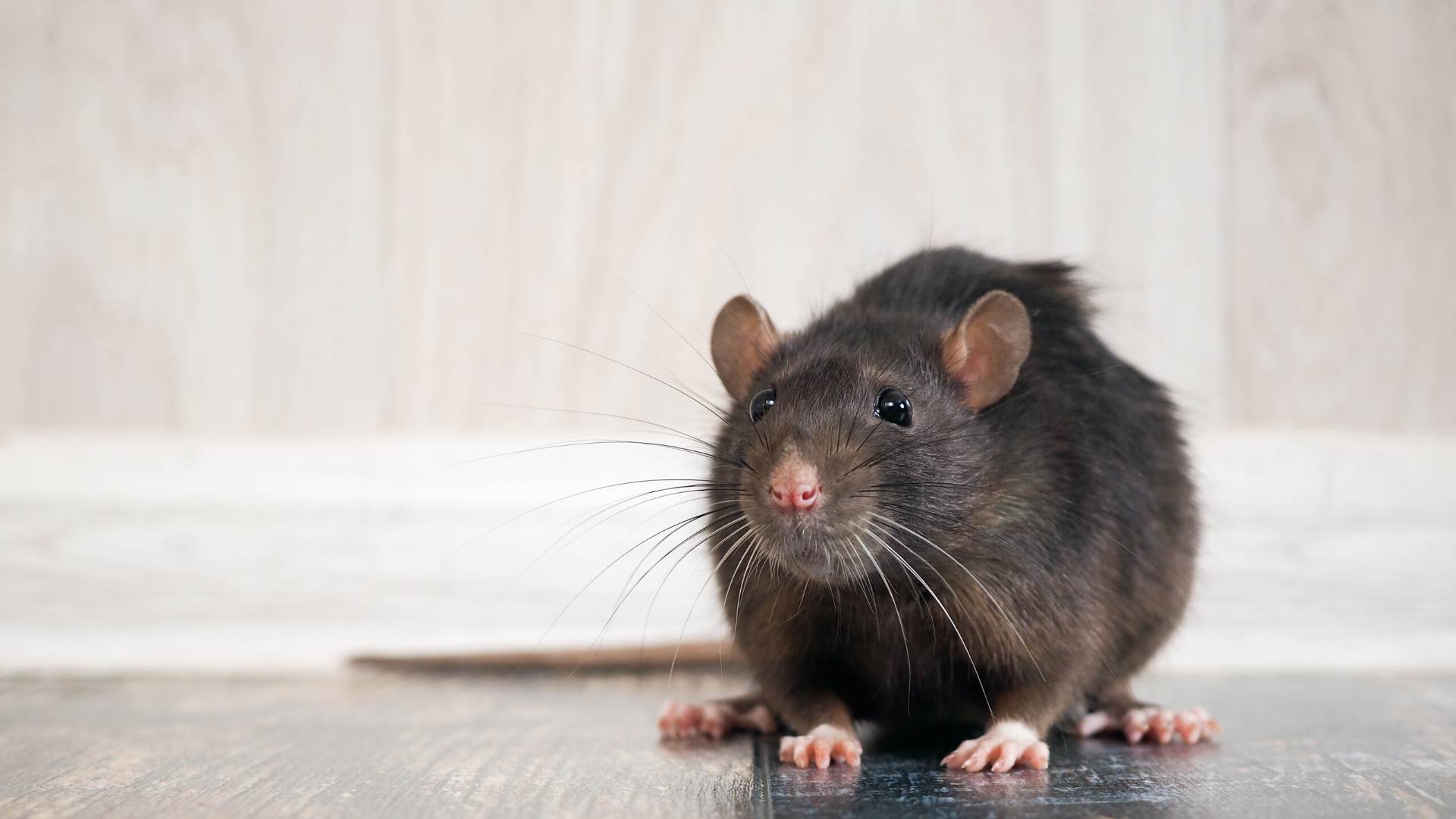As you are here on this page, I imagine that you DO need to know what attracts rats to your house!
Well, we will cover it all here in this post.
This is the same question I asked myself when I had stopped panicking about having rats in my home:
Why did you choose MY house???
Suddenly, there was a moment of clarity! If I could find out WHAT attracts rats to my house, I could use it to ensure they are NOT attracted to it.
Let’s take a look at what attracts rats to your house!
What Attracts Rats To Your House

Food

Rats are hunters and will always be out looking for food sources. Your house is a perfect hunting ground for food.
There are two things around the perimeter of your home that will attract rats in search of food, and they are trash and bird feeders.
- Trash
If your trash is easy to access, you are asking for trouble! Rats will gnaw through most things, and a trash bag will certainly not stop a hungry rat.
ALWAYS ensure that you bag your trash correctly and place it in the trash can. Do not leave trash bags next to the can for long periods.
- Bird Feeders
Many people find watching birds very relaxing. That means many people have bird feeders in their gardens. Unfortunately, bird feeders are an easy food source for a hungry rat.
If food is stored outside in your yard, always ensure it is stored correctly. Use strong metal containers to stop the rats from accessing the food. A rat will soon move on to another yard if you make it difficult for them.
Pet food also attracts rats! Some folks will store pet food outside their house, undoubtedly attracting rats. Easy access to food calls for regular pest control measures.
If you want to know what attracts rats to your house, food is top of the list!
Shelter
When a female rat is pregnant, she will look for a place to raise her litter. In this situation, the rat will look for a place that offers shelter from the elements.
Your attic and all of its items are a huge attraction for a rat to set up a nest.
Rats are looking for a warm, dry area to set up a nest, and your house offers all these things.
It is going to be difficult for you to remove the shelter. After all, your house needs to remain sheltered! It would help if you considered getting an ultrasonic rat deterrent installed in your attic to warn them off.
Ultimately, if you what attract rats to your home, then the comfort of your attic may be the answer!
Protection
Rats have many predators on the ground and many predators in the sky.
From cats to birds of prey, a rat will seek a place where it can be protected from all of them.
This is where your house comes into play!
Your house offers a huge attic as protection, but it also provides a range of worry-free travel zones for rats to use as they journey through your home.
Cavity walls are a great example of a worry-free travel zone for a rat. They will certainly not be troubled by predators in such a small area. Rats are excellent climbers and can fit through tiny holes. Traveling around your home is no trouble at all.
It is always a concern when you have rats using your cavity walls because if they die within them, it will pose a challenging problem for getting rid of the dead rat and getting rid of the dead rat smell.
If you are prone to rats or mice getting into your house, consider getting a pet. Cats are natural predators of rats, and if the rat gets the scent of a cat, it will avoid the area for its protection.
Comfort
I mentioned above when rats get into your attic, they have a massive variety of items that they can use to build their nest with.
From old paperwork to old clothes to old sentimental photographs. Rats will use anything they can find to create a comfortable nest for their litter.
Not only do rats pose a health risk to occupants of your house, but they will also destroy items that are very precious to you.
If you notice that you have chewed items in your attic, you may have a rodent problem, which you need to resolve before it is too late.
To remove the comfort, ensure that you store everything neatly in metal or thick plastic containers. Although rats can chew through plastic (and some metals), storing everything correctly will make it more difficult.
Easy Access

Rats only need a small entrance to your home to gain access, and catching them becomes much more difficult for you as soon as they have access.
A rat only needs a hole small enough to fit its head in! They can squeeze the rest of their body through after their head is cleared. Your house will likely have holes small enough to fit a rat in, especially if you have many cables and pipes that need to enter your home.
Rats are opportunistic. They may not be looking for an entrance to your house, but when hunting for food and the route to your home offers cover, they will get close enough to it. As soon as they see the entrance, they will use it.
Take regular checks around the perimeter of your house and cover up any holes you see. Use a combination of filler and steel wool. Although rats can chew through both, chewing through wireless wool is uncomfortable for rats, so they avoid it. If the holes are filled, the rat will move on without trying. It is only when they see a hole they will take advantage.
Covered Approach
While they are reasons why a rat is attracted to your home, there are things that you do to make the journey more enticing.
If you have a yard full of junk or overgrown plants or trees, you are offering a rat the chance to approach your house easily.
I mentioned above that rats have numerous predators, and if the rat has a lot of cover in the form of trees and plants, it is much easier to get to your home without being eaten.
Always ensure a clean, tidy yard; making it difficult for a rat to approach your house means only the brave ones will try!
Consider removing plants close to your house and cutting back any trees that overhang. Rats are excellent climbers and will have no trouble climbing a tree to access your home from the roof.
Conclusion
Now that you know what attracts rats to your house, you can begin to remove the attraction and reduce the chances of infestation.
There are two huge things that you can do to reduce the chances:
- Ensure that your yard is clear and does not offer protection for rats
- Set up Rat traps inside and outside of your house, just for those who get too close
Consider the route you want to take to eliminate any rats that make it into your house in terms of the rat traps. There are both positives and negatives for each approach.
For instance, you may want to consider traps, or you may wish to consider poison.
I suggest you read our guide on keeping rats away from your yard and another guide for keeping rats away from your home.
Good luck!








